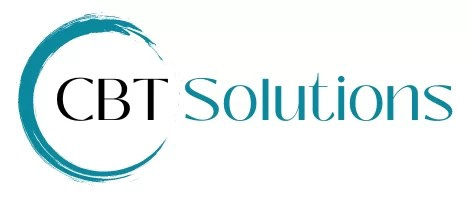Frequently Asked Questions
Do you take insurance?
CBT Solutions does not participate in any insurance networks. However, many insurance policies will partially or fully reimburse for “out-of-network providers.” This means every month we will give you a detailed receipt, with all the information you need to file for reimbursement. If you are thinking of choosing to submit claims, we recommend calling your insurance company about “out-of-network provider benefits.” Below, we offer you a list of suggested questions to ask your insurance company.
Also, there may be other health insurance benefits you can use to cover therapy sessions, including Health Savings Accounts (HSA) or Flexible Spending Accounts (FSA). Many clients use their FSA to set aside pre-tax dollars to pay for their therapy. Check with your plan about its rules and policies. Lastly, it may be possible to set up a “single case agreement” with your insurance company so that you can use your in-network benefits for therapy. Again, check with your insurer about these options for you.
What are the benefits of not paying through insurance?
Flexibility. Together, you and your therapist customize your therapy and make decisions such as number and length of sessions per week/year, use of different modalities, or increased sessions if you are in crisis. We aim to provide you with the most effective therapy without having to fit into restrictions often imposed by insurance companies. The focus of treatment will be your specific needs and how to best reach your goals.
Privacy. When paying through insurance, your psychiatric diagnosis is included in your medical record. When paying privately and not filing for reimbursement, your diagnosis is confidential. Private pay keeps sensitive information out of your medical records.
Freedom and control. You choose your therapist, even if they are not in your network. You might require an additional provider for general support, or a different specialization. Private pay allows for a treatment team, without insurance determining how the different services should work. This allows for more control over your care.
How do I pay for therapy meetings?
Payment is simple and straightforward. Our system will automatically charge your credit card at the end of each session. No need to worry about remembering to pay or to mail a check. When you sign up with us, a digital form will ask for your credit card number, which is kept in our secure database. Your therapist will not have access to your credit card number.
How do online meetings work?
We use a confidential, HIPAA-compliant video and documentation platform, so you can be assured that meetings, documents, and all information about you is kept secure. Your therapist will ensure privacy during sessions. Please make certain that you have complete privacy when participating in online sessions. We highly recommend head/earphones for confidentiality.
Is there a Cancellation Policy?
Yes. You can reschedule a meeting with your therapist 24 hours ahead of time. If you cancel within 24 hours of your meeting, you may be charged a late fee. If you miss a session without informing your therapist, you will be charged a “no-show” fee.
Evidence-based therapy is founded on the best available scientific evidence. The techniques have been studied and consistently shown to be effective in improving specific problems. It is collaborative, goal-oriented, and focuses on strengths and competence. Overall, evidence-based therapy can help people feel more informed, empowered, and able to influence their own sense of wellbeing.
What is cognitive behavioral therapy?
CBT is a type of treatment that is based firmly on research findings. It emphasizes learning skills to adjust your thoughts and actions to help you feel better emotionally. It is typically a short-term therapy that helps people achieve specific present-day goals. Exposure therapy is a type of behavior therapy that has proven to be very effective for anxiety disorders, OCD, and PTSD. It involves reducing avoidance and “facing your fears” in a step-by-step fashion, and uses between-session exercises to incorporate skills into your ongoing daily life.

